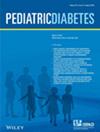探讨教师对1型糖尿病管理的态度:一项定性研究
IF 3.9
3区 医学
Q2 ENDOCRINOLOGY & METABOLISM
引用次数: 0
摘要
本研究旨在探讨教师对1型糖尿病(T1D)及其管理的态度。在幼儿园和学校工作的教师(N = 30)参加了录音的半结构化访谈(三个焦点小组和20个个人访谈),这些访谈被转录并使用主题分析进行分析。我们使用态度三要素理论作为分析的框架。态度的三个组成部分在分析中出现:知识,积极和消极的情绪,方法和对糖尿病及其管理和行为的看法。知识的主题包括糖尿病的一般知识及其管理。除了医疗之外,与会者还提到了替代治疗的可能性。情感成分揭示了对糖尿病儿童的共情、整合和隔离方法。行为部分揭示了教师如何在学校照顾和整合糖尿病儿童。他们依靠自己的职业来帮助患有糖尿病的儿童。例如,他们向他们传授健康意识,并通过同伴教育和宣传支持他们融入社会。研究结果表明,除了糖尿病管理任务外,教师还可以通过指导他们和他们的同龄人了解健康意识和对糖尿病的接受程度来帮助患有糖尿病的儿童。本文章由计算机程序翻译,如有差异,请以英文原文为准。
Exploring Teachers’ Attitudes toward the Management of Type 1 Diabetes: A Qualitative Study
This study aimed to explore the attitudes of teachers toward type 1 diabetes (T1D) and its management. Teachers working in kindergartens and schools (N = 30) participated in audio-recorded, semi-structured interviews (three focus groups and 20 individual interviews) that were transcribed and analyzed using thematic analysis. We used the theory of the three components of attitude as a framework for the analysis. The three components of attitude emerged during the analysis: knowledge, positive and negative emotions, approaches, and opinions toward diabetes and its management and behavior. The main theme of knowledge included knowledge about diabetes in general and its management. Besides medical treatment, alternative treatment possibilities were mentioned by the participants. The affective component revealed empathy, integrating, and segregating approaches toward children living with diabetes. The behavior component revealed how teachers contribute to the care and integration of children with diabetes in schools. They support children with diabetes by the virtue of their profession. For example, they teach them health awareness and support their integration through peer education and sensitization. The findings indicated that, in addition to diabetes management tasks, teachers could help children with T1D by tutoring them and their peers about health awareness and T1D acceptance.
求助全文
通过发布文献求助,成功后即可免费获取论文全文。
去求助
来源期刊

Pediatric Diabetes
医学-内分泌学与代谢
CiteScore
6.60
自引率
14.70%
发文量
141
审稿时长
4-8 weeks
期刊介绍:
Pediatric Diabetes is a bi-monthly journal devoted to disseminating new knowledge relating to the epidemiology, etiology, pathogenesis, management, complications and prevention of diabetes in childhood and adolescence. The aim of the journal is to become the leading vehicle for international dissemination of research and practice relating to diabetes in youth. Papers are considered for publication based on the rigor of scientific approach, novelty, and importance for understanding mechanisms involved in the epidemiology and etiology of this disease, especially its molecular, biochemical and physiological aspects. Work relating to the clinical presentation, course, management and outcome of diabetes, including its physical and emotional sequelae, is considered. In vitro studies using animal or human tissues, whole animal and clinical studies in humans are also considered. The journal reviews full-length papers, preliminary communications with important new information, clinical reports, and reviews of major topics. Invited editorials, commentaries, and perspectives are a regular feature. The editors, based in the USA, Europe, and Australasia, maintain regular communications to assure rapid turnaround time of submitted manuscripts.
 求助内容:
求助内容: 应助结果提醒方式:
应助结果提醒方式:


